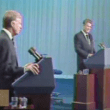Abandoning Bush—To Bush or not to Bush? That is the question conservative Arizona Congressman J.D. Heyworth pondered when asked by radio host Don Imus last November if he wanted the president to campaign with him. “In a word, no,” Heyworth answered. “Not at this time.” Turns out, Heyworth was relating a common sentiment.
These days, Republicans are running away from Bush—and fast. Pennsylvania Senator Rick Santorum declined to appear with Bush when the president came to town recently. New Jersey Senate candidate Tom Kean arrived at a Newark fundraiser 15 minutes after Dick Cheney’s motorcade had left. Kean said he’d been stuck in traffic; local news reported the roads looked clear. “Who’s running for the Senate?” frustrated Maryland GOP Senate candidate Michael Steele told a local audience. “Michael Steele, not George Bush.”
But Bush might as well be on the ballot in November, as Democrats hope to turn the ’06 elections into a referendum on the president and his “Rubber Stamp Republican Congress.” “If the election is held with Bush holding a 35 percent approval rating, [Republicans] will lose the House,” a National Review editorial recently admitted. A civil war of sorts has broken out in the Republican camp, composed of those who want to shun Bush (but to accept his money) and those who believe that the party has no choice but to embrace him. While the aforementioned Senate candidates want to cut and run from W, other party insiders insist they must stay the course with Bush. “If Republicans are going to recover,” National Review said in its editorial, “Bush is going to have to lead them.” RNC chairman Ken Mehlman, ever the political salesman, put it another way: “If Diet Coke criticizes Coke, people buy Pepsi, not Diet Coke.”
Immigration Myths—Immigration has jumped to being the second most important problem facing the country, behind the Iraq war, according to the latest Gallup survey. Gallup also found that half of the public believes “immigrants mostly hurt the economy by driving down wages.”
As Congress tackles this hot topic, opportunistic populists like CNN’s Lou Dobbs and Representative Tom Tancredo (R-CO) are cynically exploiting the economic anxiety of many Americans. But a badly needed report by the New York-based Drum Major Institute (DMI) argues that immigration need not create either/or scenarios. Sensible immigration reform should empower illegal immigrants as well as protect American jobs. “Too much of the current debate misses the point completely,” they write.
The report presents two litmus tests for evaluating immigration policy: (1) “Immigration policy should bolster, not undermine, the critical contribution that immigrants make to our economy as workers, entrepreneurs, taxpayers and consumers”; and (2) “Immigration policy must strengthen the rights of immigrants in the workplace.” When employers threaten deportation, pay exploitative wages and withhold basic rights for immigrants, “labor standards are driven down, and working people have less opportunity to enter or remain part of the middle class,” the report maintains.
What’s best for immigrants, DMI argues, is also best for all middle-class Americans. On that scale, the punitive Sensenbrenner bill, passed by the House of Representatives, is a disaster. But even the McCain-Kennedy, bill hailed by many immigrant rights activists, is far from ideal.
A Bin Laden Bounce—John Kerry and George W. Bush do agree on something: Osama Bin Laden tipped the 2004 presidential election. Four days before November 2, you may remember, a Bin Laden tape surfaced as the so-called “October Surprise.” Kerry told Fox News’s Geraldo Rivera after the election that it cost him the race. “It was that Osama tape,” Kerry said. “It scared them.”
In a new book, Strategery, Bush tells author Bill Sammon much the same thing. “I thought it was going to help,” Bush says of the oddly timed tape in which Bin Laden ridiculed the president as an incompetent. “I thought it would help remind people that if Bin Laden doesn’t want Bush to be the president, something must be right with Bush.”
According to political scientist David Gopoian, Election Day polls show that the tape may indeed have influenced the choice of up to 4 percent of voters—certainly enough to tip the election. But, Gopoian cautions, the data indicates that those voters were strongly inclined to view all other issues through “Bush-friendly lenses.” “They were persuaded exclusively by the Bin Laden tape,” he says, “the same way that a chirp by the mouse persuades the hawk that the rodent in sight might represent a good meal.”



0 Comments